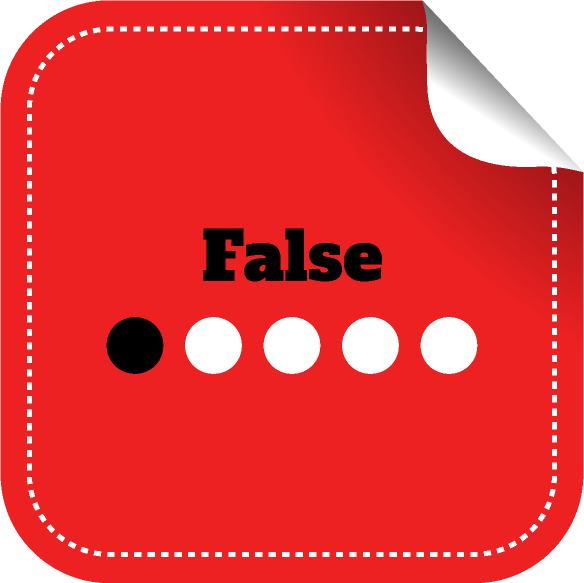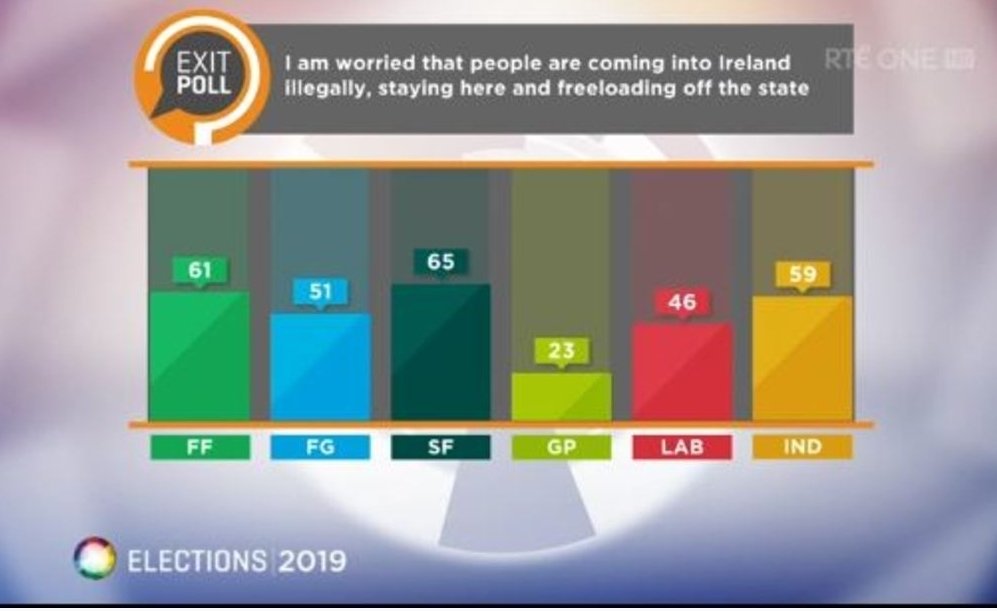What The Fact?
Are the majority of people in Ireland worried about 'illegals'?
Photo from Dulles International Airport (VA) Muslim ban protest. Photo: Geoff Livingston, via Flickr used under CC-BY-NC-ND)
- Ciara Regan
- July 29, 2019
The Claim
On the 24th of May 2019, Irish voters went to the polls to vote in the local council elections, European elections and referendum on easing restrictions on divorce. A RED C exit poll, commissioned by RTÉ and TG4 was carried out on that day. 3,016 people were interviewed immediately on exiting polling stations while the polls were open.
A range of issues that may have impacted the European elections vote were posed for sample respondents to answer, including statements for respondents to choose whether to agree (strongly or slightly) or disagree (strongly or slightly). The following statement was posed as part of the exit poll:
‘I am worried that people are coming into Ireland illegally, staying here and freeloading off the state.’
53% of respondents agreed with the statement, on average. But was this an objective statement to include in the survey?
Source: RTÉ/TG4 exit poll, May 24, 2019
The Verdict

The premise of the statement asked in the exit poll is emotive and a leading statement with multiple ideas rather than one. The results of this survey question are therefore unreliable and are rated as false, according to the What the Fact? rating scale
The Evidence
Of the sample 3,016 people, the optional survey questions ‘Issues that may have impacted vote’ (Q7) were completed by 999 people. From this group, 529 people agreed with the statement. (53%). The sample size was therefore two thirds smaller than the coordinated random and representative sample.

From the outset, the language and framing of the poll statement is problematic. It is a leading question. The term ‘freeloading’ is one which had been used by previous presidential hopeful and European election independent candidate Peter Casey during the 2019 relation to people living in direct provision in Ireland. In an interview with the Sunday Times on April 28, 2019 during the hustings Peter Casey called for “freeloaders” who came to Ireland to be “put back on the plane”.
“What we can’t afford is to become a haven for freeloaders: people who come in because they know that Ireland won’t deport them and will give them accommodation, will give them education, will give them medical services.”
This statement was widely condemned by other candidates running for election such as Brendan Smith (FF), Matt McCarthy (SF), Luke Ming Flanagan (Ind) and Mairead McGuinness (FG).
Merriam-Webster defines ‘freeloading’ as: “to impose upon another’s generosity or hospitality without sharing in the cost or responsibility involved”. The word strikes an overtly negative word. By using the word ‘freeloading’ in the statement in this context creates an immediate bias.
According to the Immigration Council of Ireland: ‘It is only through citizenship that someone can enjoy all the rights, entitlements and supports on a fully equal basis with all other Irish people.’ Undocumented people, or those who have come here illegally cannot access social welfare. It is worth stating that although people who have come here illegally cannot access social welfare, they do still have rights.
On issues related to illegal migration, there are three dimensions worth noting.
- There are an estimated 20,000 – 26,000 undocumented people living and working in Ireland (in Ireland illegally); most of whom overstayed visas, rather than travelled illegally, according to the Migrant Rights Centre of Ireland.
- Other people who are deemed to have entered Ireland illegally are those who are potential victims of human trafficking, according to the Refugee Council of Ireland.
- By way of comparison, TheJournal.ie reports that there are anything from 10,000-15,000 undocumented Irish in the USA and tens of millions in India and millions in Pakistan and Iran (mainly from Afghanistan) as documented by the UN Department of Economic and Social Affairs in November 2018. This is not a local challenge alone but a common occurrence in other countries and other jurisdictions.
According to the same exit poll data, 7 out of 10 voters agreed that migration has benefitted Ireland.
Survey design
The most popular survey tool on the internet, SurveyMonkey, published a guide for survey designers called 5 common survey question mistakes that’ll ruin your data, and had this to say about ‘leading questions’:
“Don’t write leading questions. Top survey mistake #1: Questions should never be worded in a way that’ll sway the reader to one side of the argument. Usually you can tell a question is leading if it includes non-neutral wording. If the question is rewritten to be neutral-sounding, it can eliminate the leading bias.”
The General Medical Council UK takes issue with ‘double-barrelling’ in their survey design best practice guidelines, which states:
“If the wording of a question can be broken down into two or more separate questions, and a respondent could answer those separate questions in different ways, then it will be impossible to analyse the responses to the combined question without ambiguity.”
For example, the statement can be broken down into at least three separate parts:
‘I am worried that people are coming into Ireland illegally’.
‘I am worried that people are coming into Ireland are staying here’.
‘I am worried that people are coming into Ireland are freeloading off the state’.
On these two counts, the statement used in the poll is unreliable as it uses emotional, or evocative language.
RED C did not respond to requests for comment.
The verdict
Based on the What The Fact? scales guide, the claim is rated as False – the claim is inaccurate based on the best evidence publicly available at this time.
Sources
- Hayley Halpin, Peter Casey challenged over immigration during European elections tv debate, TheJournal.ie, April 28, 2019
- Immigration Updates: An important message for undocumented workers in Ireland, Migrant Rights Centre,
- Survey Design: best practice guidelines, General Medical Council UK, July 2017
- 5 common survey question mistakes that’ll ruin your data, SurveyMonkey
- Freeload, Merriam-Webster online
- Exit Poll for the European Elections, Local Election and Divorce Referendum, RED C exit poll commissioned by RTÉ/TG4, May 24, 2019
- Citizenship & Permanency, Know Your Rights fact sheets, Immigrant Council of Ireland
- Forced Migration and Undocumented Migration and Development briefing paper by Holly Reed, Department of Economic and Social Affairs (DESA), United Nations, October 31, 2018
_______________
developmenteducation.ie’s What The Fact? supports the code of principles of the International Fact Checking Network. We check claims by influencers, from local to national to transnational that relate to human rights and international human development.
Transparent fact checking is a powerful instrument of accountability, and we need your help.
Send tips and ideas to facts@developmenteducation.ie
Join the conversation #whatDEfact on Twitter @DevEdIreland and Facebook @DevEdIreland
